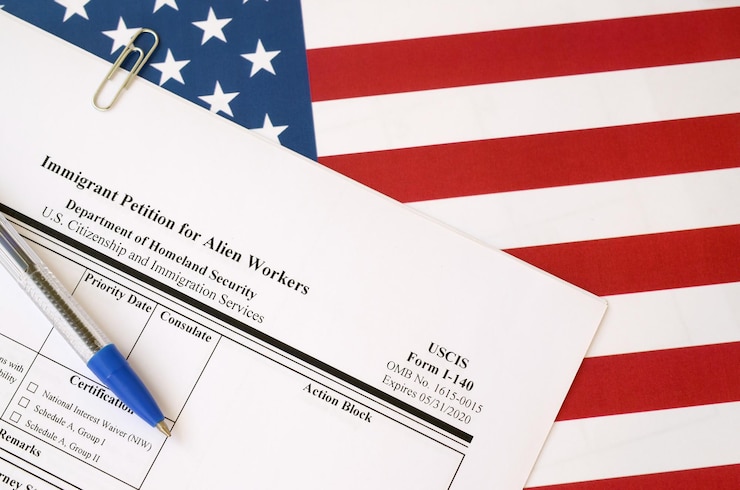H Con Res 14 may seem like just another budget document when viewed against the usual backdrop of Washington’s budget disputes. Beneath its technical jargon, however, is a possible change that might have an impact on service workers’ paychecks across the country. Some are interpreting the resolution as a de facto “tax on tips” because it permits broad cuts to social safety nets and creates the framework for extending the 2017 Tax Cuts and Jobs Act.
Despite never specifically mentioning gratuities, the resolution, which was approved by the House on April 10, 2025, might put tip-dependent workers under more financial strain if a reconciliation bill is enacted. Access to Medicaid and SNAP may be severely limited for those who work in restaurants, lodging facilities, and salons for minimum cash wages. Furthermore, a reduction in public benefits without wage increases feels a lot like a covert tax evasion.
H Con Res 14 Key Details
| Category | Details |
|---|---|
| Name | House Concurrent Resolution 14 (H Con Res 14) |
| Date Passed | April 10, 2025 |
| Budget Timeline | FY2025–FY2034 |
| Key Provisions | Enables extension of 2017 Tax Cuts, up to $880B Medicaid and $230B SNAP cuts |
| Notable Impact | Increased burden on low-income, tipped workers due to social safety net reductions |
| Mechanism | Reconciliation process allows passage with simple Senate majority |
| Projected Economic Drag | Estimated $600B decline in spending, ~2% of U.S. GDP |
| Reference | Congressional Budget Office |
This exacerbates the already fragile tip economy
The service sector has emerged as a key economic driver in both urban and rural America during the last ten years. However, the millions of waiters, baristas, delivery drivers, and cleaners that make up its workforce work in a dynamic environment where survival is frequently determined by tips. H Con Res 14 puts that workforce at greater risk by cutting nutrition and healthcare programs at a time when inflation is still outpacing wage growth.
The term “tax on tips” in this sense does not imply that the IRS is looking into your restaurant gratuities. Rather, it represents the cumulative financial strain that tipped workers will experience in the event that social programs are drastically cut. It would be equivalent to asking someone to run a marathon and then stealthily removing their running shoes afterward.
Who Benefits and Who Loses from the Economic Math of the Resolution?
Congress can move forward with budgetary objectives by using reconciliation instead of the 60-vote Senate threshold, which is a legal procedural strategy that can expedite significant fiscal changes. The bottom 40% of earners’ income would decrease as a result of the proposed Medicaid cuts alone under H Con Res 14. On the other hand, EPI estimates that the tax extensions would increase income by almost 4% for the top 1% of earners.
The gap is glaringly obvious: when Medicaid cuts are balanced against the meager gains from tax cuts, the bottom fifth of American households would experience a 6.8% net income loss. Additionally, low-income families—particularly those in service roles—may need to work more hours simply to keep up with the compound returns enjoyed by wealthier Americans.
Why, Despite Not Being Law Yet, This Budget Framework Is Important
As critics correctly point out, budget resolutions are not legally binding. They are blueprints. However, because they indicate what Congress deems negotiable, they are politically binding. If H Con Res 14 is a compass, it is currently pointing in the direction of public austerity and privatized risk. This is significant because tips are insufficient to compensate for workers who lose their food assistance or health insurance.
The resolution is especially harmful for workers whose incomes fluctuate because it places a higher priority on deficit reduction than economic inclusion through reserve fund regulations and strategic scoring mechanisms. These budgetary objectives influence actual policy decisions in the future, so they are not merely theoretical.
Tips for Employees and Voters to Keep an Eye on
The discussion surrounding H Con Res 14 will shift from resolution to reconciliation in the upcoming months. This is where practice and policy collide. Extensions of the 2017 tax cuts may be included in reconciliation bills; while this may seem like good news to some, who will foot the bill will depend on how those cuts are funded.
Service workers may inadvertently end up paying for the tax breaks of the wealthy if the funding comes from Medicaid, SNAP, or other comparable programs. Legislators run the risk of reducing consumption by an estimated 2% of GDP by combining deficit-financed tax cuts with significant social cuts, which would be detrimental to businesses that already rely on consumer spending.
A Demand for Financial Equity Rather Than Vulnerability
Stability should be ingrained in policy, not optional, for individuals whose income is influenced by the generosity of customers, such as single parents and early-career employees. The long-term economic tone is set by budget frameworks such as H Con Res 14, and in this instance, the melody sounds familiar: privilege is rewarded, vulnerability is penalized.
Policymakers have a unique opportunity to change that narrative by supporting more equitable reconciliation measures and opposing spending cuts that disproportionately impact low-income earners. Because, in the larger context of economic justice, tip protection is about dignity as much as wages.


